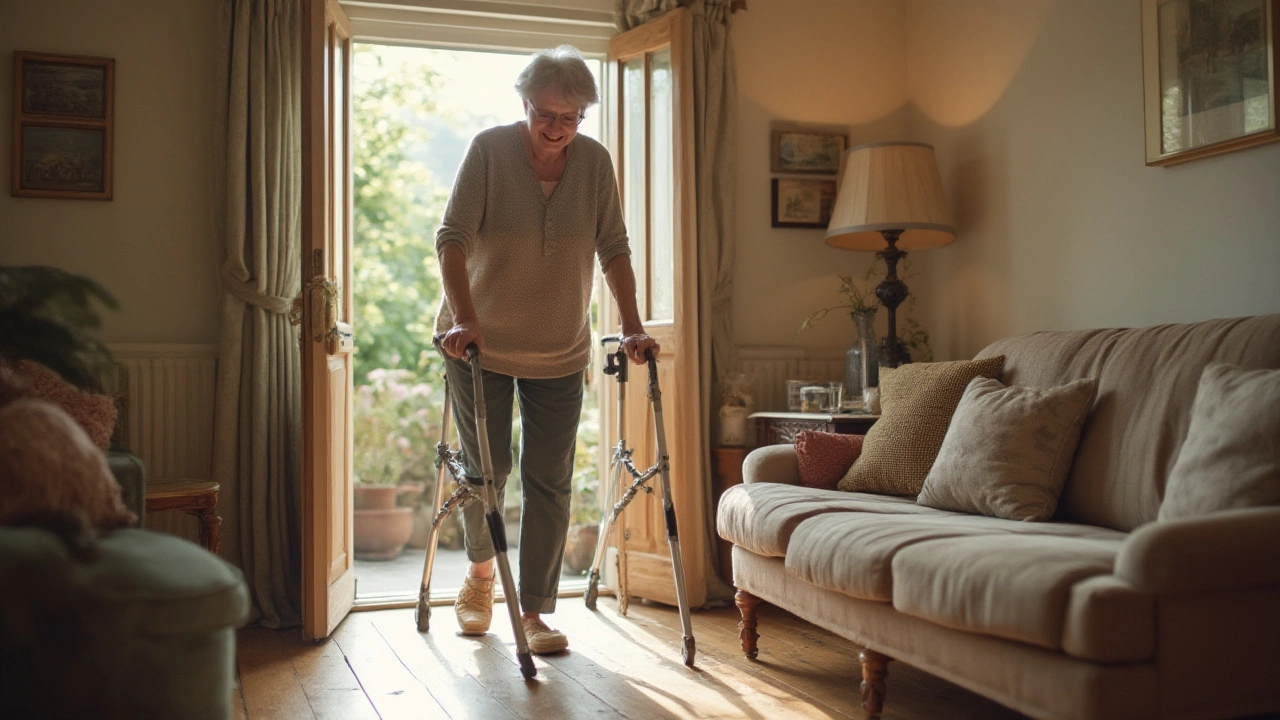Home Environment: Simple Ways to Keep Your Health Safe at Home
Ever wonder why you sometimes feel off even when you’re following the doctor’s orders? The answer often lies in the rooms you live in. A clean, organized, and well‑ventilated home can make your medicines work better and reduce the chance of accidental mix‑ups.
It’s not just about dust or clutter. The temperature, lighting, and even the type of furniture you use can affect how you store pills, how you remember doses, and how your body reacts. Below, we’ll break down the basics and give you quick, doable steps you can start today.
Why Your Home Impacts Medications
First, storage matters. Most drugs stay stable at room temperature, but certain meds – like insulin or some antibiotics – need cooler spots. If your fridge is crowded or the temperature fluctuates, those meds can lose potency.
Second, humidity can crack tablets or cause mold in powders. A bathroom cabinet might look convenient, but the steam can turn a solid pill into a mushy mess.
Third, lighting plays a role in remembering doses. Bright, labeled containers near where you eat or get ready help you stick to the schedule. Dim corners often become the “forgotten” zone where pills get ignored.
Lastly, home air quality influences how you feel after taking medication. Poor ventilation can trap allergens and irritants, making inhalers like albuterol less effective. A fresh breeze or a simple air purifier can improve breathing and help the drug do its job.
Practical Steps for a Healthier Home
1. Designate a medication station. Pick a dry, cool drawer or shelf away from the stove and bathroom. Use clear bins and label them with the drug name and dosing time.
2. Check temperature and humidity. A small digital thermometer and hygrometer cost a few bucks. If the meds need refrigeration, invest in a small dedicated fridge or a cooler box with a thermometer.
3. Keep a weekly pill organizer. This visual aid reduces missed doses and helps you see if you’re running low before you run out.
4. Improve air flow. Open windows for 10‑15 minutes daily, or run a fan. If you have allergies, swap out heavy curtains for breathable shades.
5. Store supplements safely. Natural products like Tree of Heaven or Diabecon can lose potency in heat. Keep them in a pantry that stays under 75°F (24°C).
6. Set up reminders. Use your phone’s alarm or a simple sticky note on the fridge. The goal is to make the routine automatic.
7. Reduce clutter. When you clear out old medicine boxes, you avoid accidental double‑dosing. Dispose of expired meds at a pharmacy take‑back program.
8. Check labels before buying online. If you need a medication like Prozac, Fluoxetine, or Clarinex, verify that the pharmacy is licensed, shows a physical address, and uses secure payment. Look for reviews that mention fast shipping and proper packaging.
9. Read side‑effect warnings. Some drugs interact with household chemicals. For example, certain eye drops can be affected by strong cleaning agents. Keep them away from chemicals and store them in a clean area.
10. Educate family members. Let everyone know where the meds are and how to use them. Simple conversations prevent accidents, especially with kids around.
By tweaking a few habits, you can turn your home into a health‑supporting space rather than a risk factor. The changes are cheap, quick, and you’ll see the benefits in how you feel day to day.
Remember, the best medicine starts with a safe environment. Take a few minutes each week to review your storage spots, air quality, and reminders. Your body will thank you, and you’ll avoid costly trips to the pharmacy for refills that could have been prevented.

How to Create a Comfortable Home for People With Skeletal Muscle Conditions
Discover practical ways to make your home more comfortable for people living with skeletal muscle conditions. Learn how to adapt spaces for easier movement, reduce daily stress, and boost independence.
